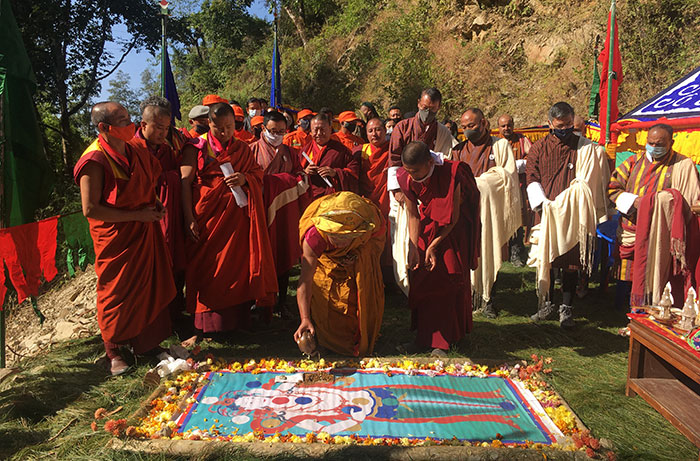Chimi Dema | Tsirang
The second pilot project for De-Suung national service focusing on improving and expanding water supply was launched yesterday in Dangreygang chiwog of Semjong gewog, Tsirang.
The project is expected to resolve the current drinking water shortage and provide water for irrigation purpose.
As an integrated scheme, the project would supply drinking water to 69 households, benefiting about 300 people, and provide water for irrigation to benefit about 70 acres.
A team of 45 De-Suups, comprising of six engineers, is undertaking the pilot project with guidance from dzongkhag engineers and experts from the Ministry of Agriculture and Forests (MoAF).
The main components of the project include watershed conservation, construction of large reservoir tank for dry land irrigation, piloting micro-irrigation technologies such as drips and sprinklers, automation of the micro-irrigation system, and improved technology for crop production.
As part of the pilot project, MoAF will also provide training on improved production technologies including micro-irrigation and input support for agriculture production.
De-Suung’s director general, Tashi Tobgye, said that the launch of water projects is a humble response to His Majesty The King’s address to the nation on 12 September this year.
“The national service, launched on 11 November, seeks to engage youth in nation-building in times of difficulty due to the Covid-19 pandemic,” he said at the groundbreaking ceremony.
While 2,000 De-Suups were trained in 42nd De-Suung, specialised in water resource management, there are 1,500 trainees in the ongoing 43rd De-Suung specialised training in six training centres.
Tashi Tobgye said that the trained De-Suups would be encouraged to volunteer for upcoming national service projects across Bhutan.
The De-Suung national service, in partnership with the Water Flagship Programme of the government plans to initiate three additional water projects in Trongsa, Mongar and Chukha by December this year.
Meanwhile, Semjong gup, Top Nath Acharya, said the pilot water project would make a huge impact on farmers’ livelihoods.
“Vegetable production is one of the main sources of income for our farmers and they need water for mass cultivation,” he said. “This water project would help the farmers.”


